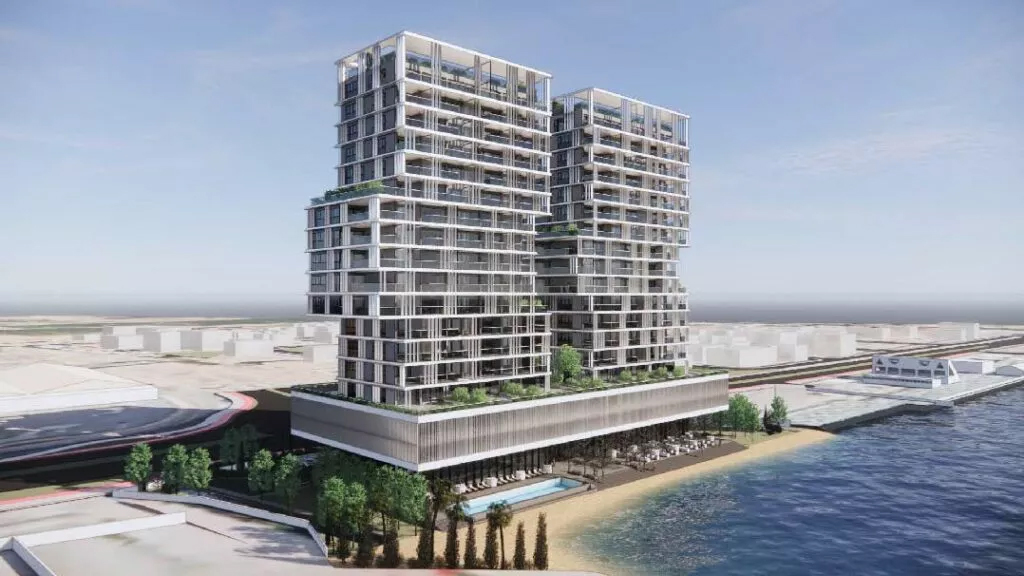Conditional approval has been given for the construction of two towers on Larnaca’s beachfront by an Israeli-owned business.
While little is known about the company, named Solvin Ltd, it appears to be led by a man named Alon Natan Rechter, an Israeli national who is based on the island.
The towers, which are to be known as the “Aqua Residences” will be built next to one another on the beach next to the Varosioti roundabout, in the town’s northern suburbs. The construction is expected to cost around €40 million, with the towers set to be 15 storeys or 67.7 metres high.
The complex will also have 155 parking spaces, a swimming pool, a gym, a spa, roof gardens, and “public green spaces”.
According to reports in local media, the approval has been given subject to the condition that a certain amount of land be reclaimed from the sea, with newspaper Phileleftheros reporting that as much as 40 per cent of the 1,294-square-metre plot on which the complex is set to be built has subsided due to coastal erosion.
The same report says the developers will be required to “monitor the coastline for at least six months, including during the winter season”.
The project’s approval comes amid concerns regarding large-scale purchases of real estate in Cyprus by people and business from abroad, with Akel having focused on those of Israeli origin over the weekend.
“Especially in the last time period … there has been observed an increased purchase of real estate, targeted purchases, and specifically in Limassol and in Larnaca … specific areas are being bought en masse,” party leader Stefanos Stefanou said on Monday, saying some of them are gated, secure communities.
He added that reports in Israeli media are suggesting that “Israel is preparing a ‘back yard’ in Cyprus”.
In Larnaca, Israeli nationals are the fourth most common buyers, with 1,406 property purchases listed, 481 of which with title deeds.
Stefanou’s intervention on the matter prompted Israeli ambassador Oren Anolik to respond, decrying a spike in what he described as “antisemitic rhetoric” in Cyprus’ public sphere.
“What threatens democracy is not diversity, but the spread of hateful myths targeting entire communities. Doing this is not expressing political opinion; it is hate speech,” he added.
“We call on all responsible voices in public life to condemn the language of antisemitism, fear mongering and collective demonisation.”
He did not specify to what exactly he was referring in the statement, though its timing did constitute an indication.






Click here to change your cookie preferences